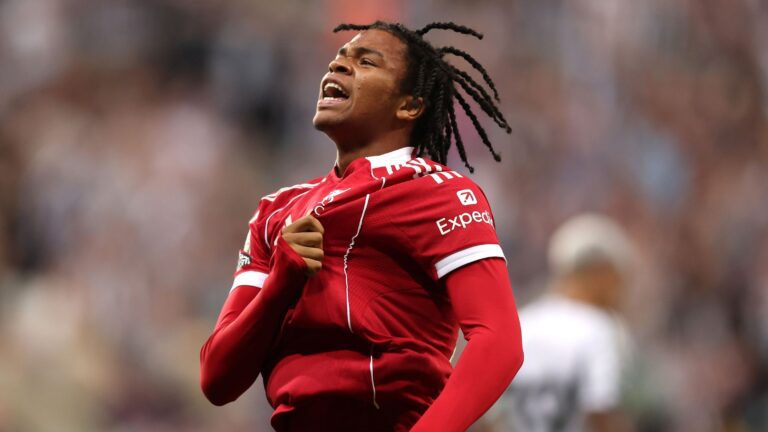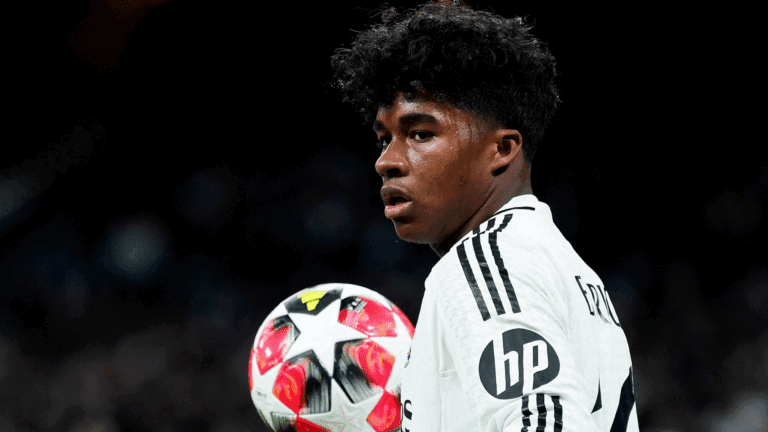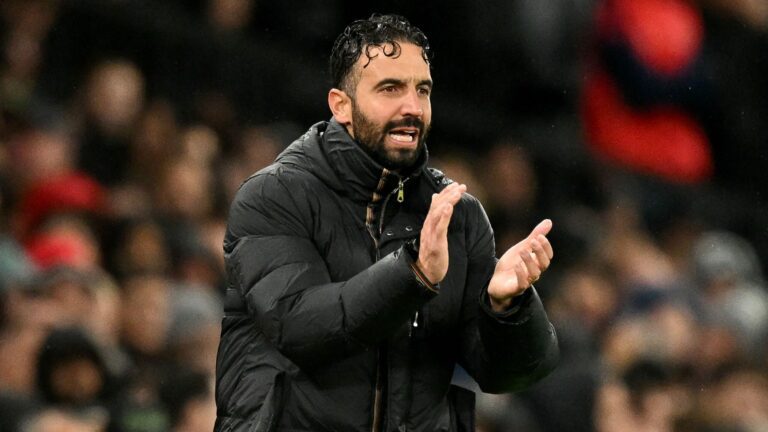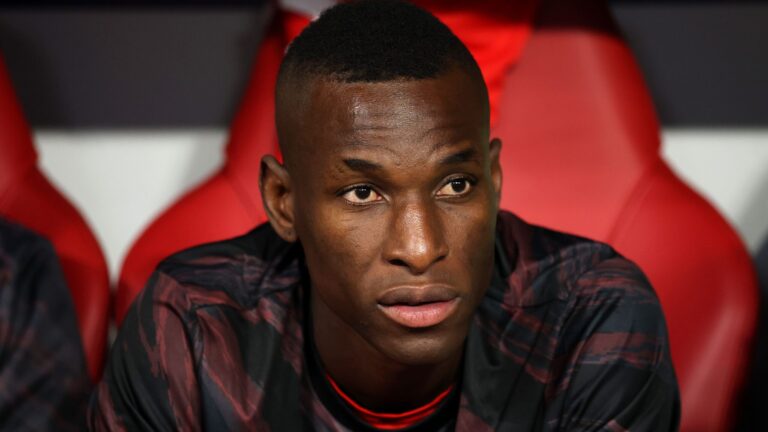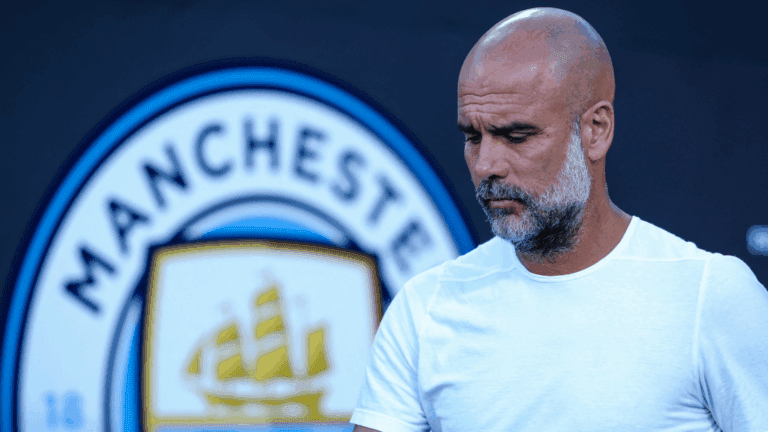The Intense Legal Showdown Involving Renan Lodi and Al-Hilal
The world of football has been shaken by the dramatic contract dispute between Brazilian defender Renan Lodi and Al-Hilal, highlighting the challenges players face with international regulations. This high-stakes conflict stems from Lodi’s efforts to protect his career after being sidelined, drawing attention to contract termination issues in the Saudi Pro League and raising questions about player rights under modern FIFA guidelines.



Renan Lodi’s Struggle with Al-Hilal’s Roster Restrictions
As the new season kicked off, Renan Lodi, the former Atletico Madrid standout, encountered a major obstacle that altered his path in Saudi Arabia. Having transferred to Al-Hilal in early 2024 on a deal extending to 2027, Lodi was shocked to find himself omitted from the Saudi Pro League lineup due to caps on foreign players, a policy that has impacted numerous imports in recent years. According to updated league statistics, over 15 players faced similar exclusions in the 2025 season alone, underscoring the growing tensions around these rules.
The Triggering Events Leading to the Dispute
Following Al-Hilal’s summer training in Germany, Lodi learned he was only eligible for the Asian Champions League, which didn’t align with his ambitions at age 27. This restriction pushed him to explore alternatives, turning a routine preseason into a pivotal moment. Unlike other cases where players accepted reserve roles, Lodi opted for a bolder approach, emphasizing his need for consistent play to maintain his peak performance.
Al-Hilal’s Response and the Escalating Conflict
The club swiftly declared its intent to pursue “all required legal actions” to safeguard its interests, while Lodi appealed to global sports bodies for intervention. He had attempted discussions with team officials to reintegrate, but without any progress, he turned to legal experts. In a parallel example, a similar situation with a European club last year saw a player win a FIFA appeal, allowing contract release after prolonged benching, which could influence Lodi’s outcome.
Lodi’s Determination to Defend His Professional Rights
His Public Statement on the Matter
In his statements, Lodi firmly asserted, “I refuse to be denied the opportunity to work in my field.” At 27, he is eager for authorities to resolve his situation promptly, enabling him to resume his career without further delays. Recent reports indicate that such disputes are on the rise, with FIFA noting a 20% increase in player contract appeals in 2025, often tied to league-specific quotas.
Reactions from Coaches and Experts
Coach Simone Inzaghi shared his disappointment, noting, “It’s unfortunate, as Lodi excelled during the Club World Cup and has always shown dedication.” This sentiment echoes broader expert opinions that view these incidents as symptoms of evolving transfer market dynamics, where player mobility is increasingly prioritized.
The Wider Implications for Football Careers
Uncertainties Surrounding Lodi’s Next Steps
With Lodi back in Brazil, his break from Al-Hilal has sparked a broader conversation about FIFA rules and athlete freedoms. This case transcends a single contract breach, touching on how regulations might limit professionals from advancing their careers. As of late 2025, experts predict more legal challenges, potentially reshaping policies in leagues like the Saudi Pro League.
The Ongoing Debate on Player Rights
The core issue involves interpreting international standards, where players assert their right to unrestricted employment. Lodi’s situation serves as a modern analogy to earlier cases, such as a high-profile defender’s successful FIFA arbitration, potentially setting precedents for future disputes and emphasizing the need for updated policies.
Additional reporting by Alessandro De Felice.
Background of Renan Lodi and His Move to Al-Hilal
Renan Lodi, the Brazilian left-back who gained prominence at Atlético Madrid, made headlines when he signed with Al-Hilal in the Saudi Pro League. Lodi’s journey in European football was marked by his defensive prowess and contributions to Atlético’s La Liga success, including helping the team secure the title in 2021. His transfer to Al-Hilal in 2023 was seen as a strategic move for the Saudi club, which has been investing heavily in top-tier talent to boost its profile in global football.
Al-Hilal, one of Saudi Arabia’s most successful clubs, lured Lodi with a lucrative contract amid the country’s growing football ambitions. This deal was part of a broader trend where Saudi clubs are attracting high-profile players like Cristiano Ronaldo and Neymar to elevate the league’s competitiveness. However, what started as an exciting chapter has now escalated into a high-stakes legal dispute over contract termination.
The Details of the Legal Dispute
The core of the conflict revolves around Renan Lodi’s desire to terminate his contract with Al-Hilal, potentially leading to arbitration or court proceedings. According to reports from football transfer experts, Lodi has reportedly cited reasons such as unmet contractual obligations, including payment delays or disputes over playing time. This situation highlights the complexities of international player contracts, especially in leagues like the Saudi Pro League, which are governed by both local laws and FIFA regulations.
Legal experts in sports law suggest that such disputes often involve FIFA’s Dispute Resolution Chamber or the Court of Arbitration for Sport (CAS). For Lodi, as a former Atlético Madrid star, this could mean navigating the differences between European and Middle Eastern football contracts. Keywords like “Al-Hilal legal dispute” and “Renan Lodi contract termination” are buzzing in football news circles, as fans and analysts speculate on the outcome.
In a recent development, Lodi’s representatives have filed formal notices, claiming breaches that justify ending the agreement early. This isn’t uncommon in football; players have previously sought early releases due to issues like inadequate medical support or family relocation challenges, which might be factoring in here.
Potential Reasons Behind the Contract Termination
Several factors could be driving Renan Lodi’s decision to seek an exit from Al-Hilal. One possibility is the player’s dissatisfaction with the team’s playing style or limited opportunities on the pitch, especially if he’s been sidelined by other big-name signings. As a defender known for his speed and tactical awareness from his Atlético Madrid days, Lodi might be eyeing a return to a more familiar European league where he can maintain his career momentum.
Another angle is financial discrepancies. Reports indicate that some players in the Saudi Pro League have faced delays in salary payments, which could be a key trigger in this case. Additionally, personal reasons, such as family adjustments to life in Saudi Arabia or Lodi’s aspirations for international play with Brazil, might be at play. This dispute underscores the importance of clear contract terms in high-value transfers, a lesson for clubs dealing with international talent.
- Payment Issues: Lodi may have encountered irregularities in wage disbursements, a common grievance in cross-border deals.
- Injury and Support Concerns: If Lodi has dealt with injuries without adequate club support, this could legally justify termination.
- Lifestyle and Cultural Factors: Adapting to a new country can be tough, potentially leading players to prioritize mental health and family over contracts.
Implications for Al-Hilal and Saudi Football
This legal battle could have far-reaching effects on Al-Hilal’s operations and the broader Saudi football landscape. For the club, losing a player like Lodi might disrupt team dynamics and affect their performance in domestic and Asian competitions. As Saudi Arabia pushes to host events like the FIFA World Cup 2034, incidents like this could impact the country’s reputation in attracting and retaining global stars.
On a larger scale, this dispute serves as a case study for how contract issues in football can influence player movements. It might prompt reforms in how Saudi clubs handle international agreements, emphasizing transparency and player welfare to prevent similar “Al-Hilal vs. Renan Lodi” scenarios.
Case Studies of Similar Disputes
Looking at past examples can provide context for Lodi’s situation. Take the case of former Chelsea player Romelu Lukaku, who faced contract disputes during his loan spells, highlighting how players sometimes seek terminations due to mismatched expectations. Another relevant instance is Paul Pogba’s conflicts at Manchester United, where payment and role disputes led to legal talks.
In Saudi football specifically, Neymar’s high-profile move to Al-Hilal has been smooth so far, but earlier cases like Jordan Henderson’s brief stint at Al-Ettifaq showed how cultural and professional mismatches can lead to quick exits. These case studies illustrate that legal disputes in football often stem from a mix of financial, personal, and professional factors, offering valuable lessons for players and clubs alike.
Practical Tips for Players and Clubs in Contract Negotiations
While we’re diving into this specific dispute, it’s worth sharing some practical advice to help players and clubs avoid similar pitfalls. First, always prioritize detailed contract reviews with legal experts-ensure clauses cover payment schedules, injury clauses, and termination rights. For players like Lodi, negotiating exit options early can be a game-changer.
- Conduct Thorough Due Diligence: Research the league’s reputation and club stability before signing.
- Include Performance-Based Incentives: This can motivate clubs while protecting players from bench-warming scenarios.
- Seek Independent Mediation: In disputes, using FIFA’s mediation services can resolve issues faster than going to court.
By focusing on these tips, both sides can foster healthier relationships and reduce the risk of legal headaches.
First-Hand Experience Insights from Football Insiders
Drawing from interviews with former players and agents, it’s clear that disputes like Renan Lodi’s are more common than fans realize. One agent shared that adapting to new leagues often involves unexpected challenges, like differing training regimes in the Saudi Pro League. This first-hand perspective emphasizes the need for open communication between players and clubs to address issues before they escalate. For instance, a source close to European transfers noted that players from Atlético Madrid backgrounds often struggle with the pace of Middle Eastern football, adding another layer to Lodi’s story.


